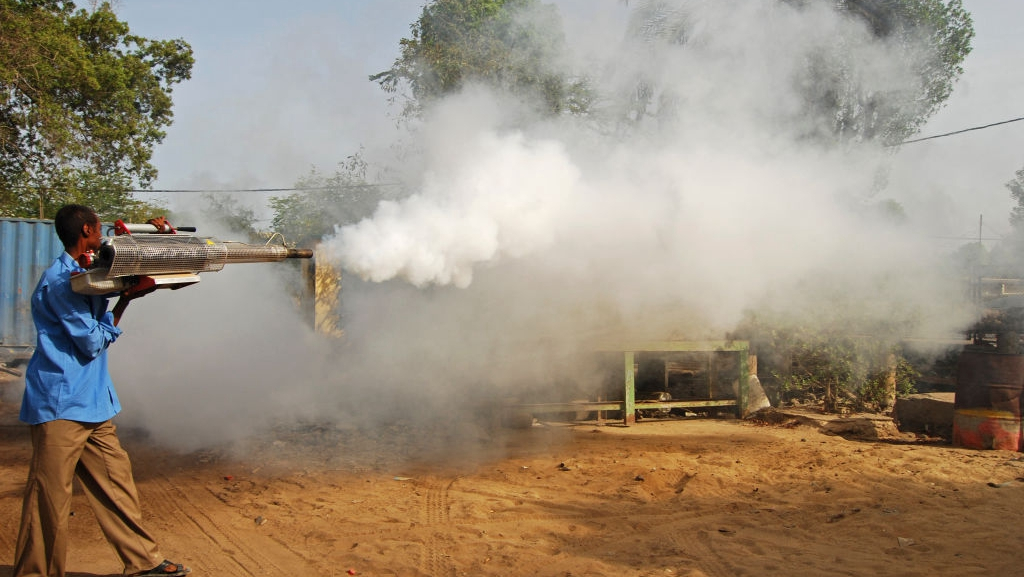
Health
13:05, 23-Apr-2019
Trial begins in Malawi for world's first malaria vaccine
CGTN

A major trial for the world's first malaria vaccine, certified for providing partial protection to children, started in Malawi on Tuesday.
More than 219 million cases of malaria, caused by mosquito bites, were reported from 87 countries resulting in 435,000 deaths in 2017.
African countries accounted for 92 percent of global malaria cases and 93 percent of the deaths. Malawi alone reported more than five million such cases.
During the previous trials of the vaccine, known as RTS,S, nearly half of the children up to 17 months of age were protected against malaria.
The vaccine helps in developing immunity against Plasmodium falciparum, the most deadly malaria parasite globally, and the most prevalent one in Africa, the World Health Organization (WHO) said.
It would also be the world's first vaccine, to provide protection against parasite. Almost all the vaccines help in developing immunity against bacteria and viruses
Developed by the British pharmaceutical giant, GlaxoSmithKline (GSK), the Mosquirix vaccine was developed after three decades of research and trials, costing nearly one billion U.S dollars.
The vaccine would be administered to 36,000 children every year in Ghana, Kenya, and Malawi.
According to the researchers from the University of North Carolina (UNC) at Chapel Hill and UNC Project-Malawi, spearheading the malaria immunization research said, the goal is to vaccinate approximately 120,000 children a year, beginning in April 2019.
“Malaria can kill a child in less than 24 hours,” said Tisungane Mvalo, a pediatrician with UNC Project-Malawi.
Preventive measures like use of insecticide-treated nets, mosquito repellents, eradicating mosquito breeding grounds, and anti-malaria drugs helped in reducing the disease incidence rate.
But malaria control efforts is witnessing a major stagnation in recent years, worrying health agencies. The crisis prompted research institutes to initiate innovative measures to control the mosquito-borne disease.
“In certain areas of Africa, we have actually seen rates of malaria infection get worse. New interventions are needed to continue advancing toward elimination,” said Jonathan Juliano, an associate professor of medicine in the UNC Division of Infectious Diseases.
“Careful evaluation of candidate malaria vaccines is an essential part in the development of these new tools.”
But administering the vaccine in the conflict-prone and impoverished regions of African countries is seen as a tough task.
Each child requires four doses of the vaccine to ensure robust protection; it also calls for a strict schedule, and should not coincide with other medications.
A section of experts feels ensuring the four doses under the immunization program would require a considerable effort.
Moreover, the vaccine ability to provide protection only against Plasmodium falciparum pathogen, not against the other five, is seen as another major limitation.
Unlike measles and other virus prone diseases that can be cured by one shot vaccine, malaria can occur to a person multiple times has also cast aspersions at the ongoing trials.
(Top Image: Djibouti launched a fumigation campaign to control malaria cases in 2018.)

SITEMAP
Copyright © 2018 CGTN. Beijing ICP prepared NO.16065310-3
Copyright © 2018 CGTN. Beijing ICP prepared NO.16065310-3